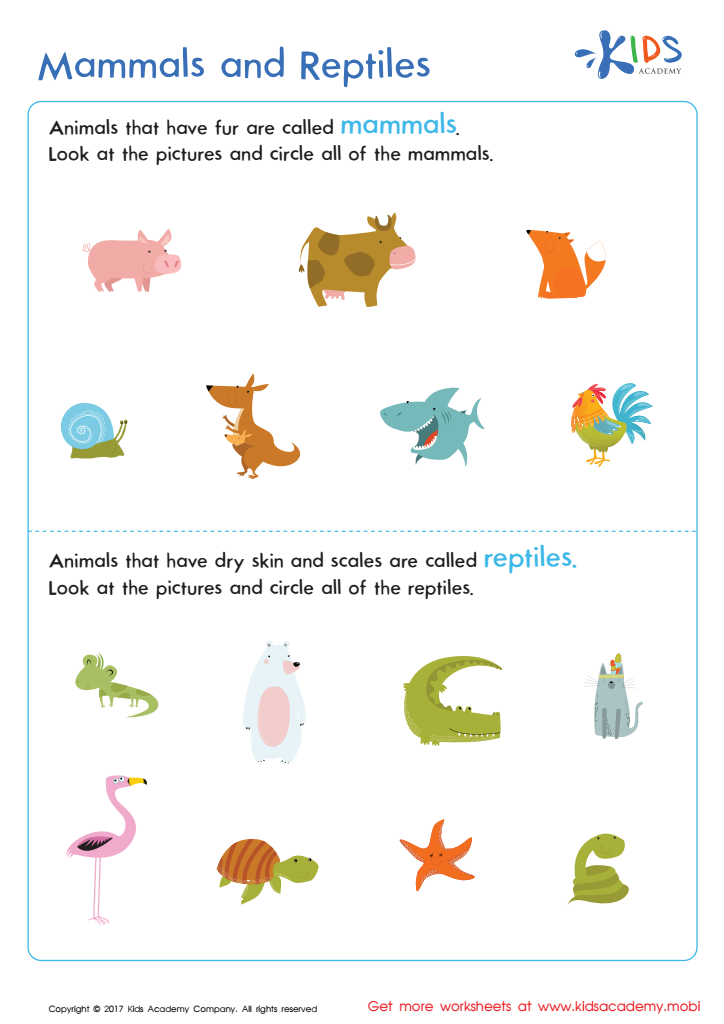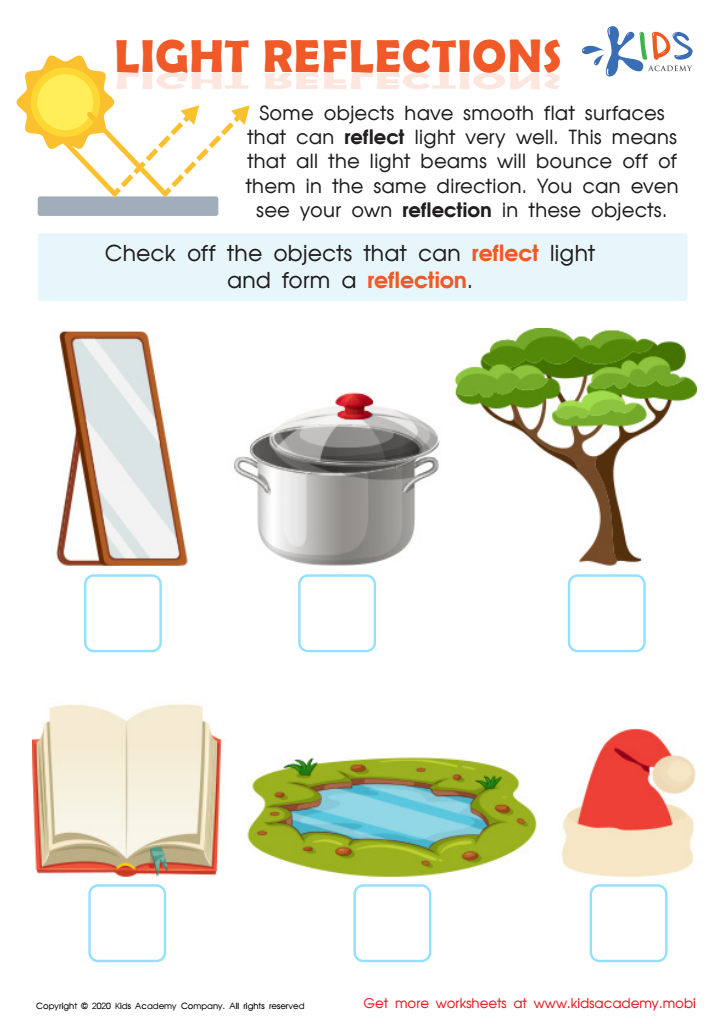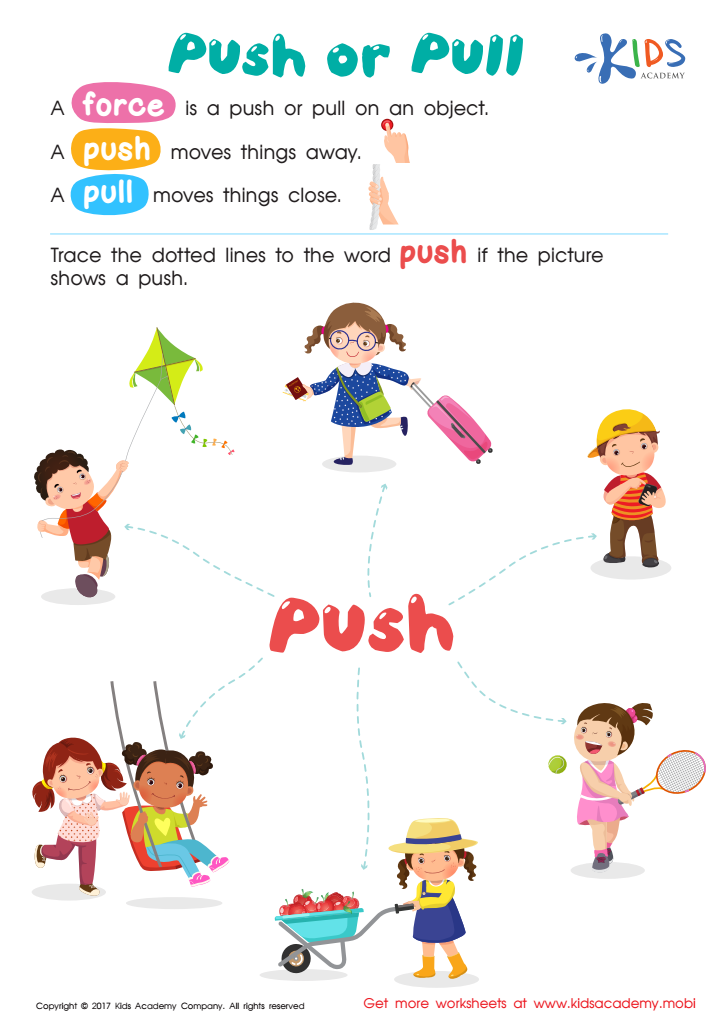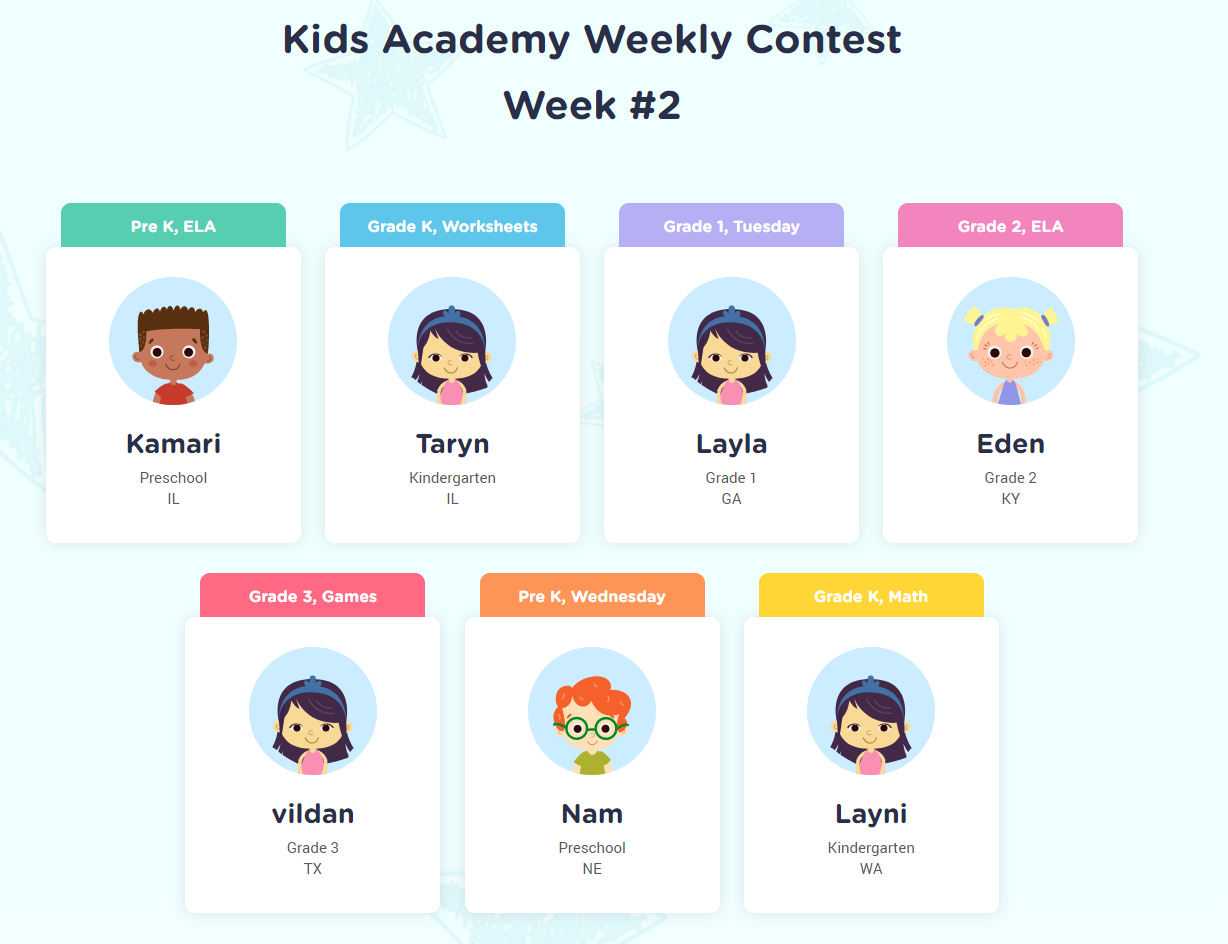Enhancing observational skills Grade 1 Science Worksheets
3 filtered results
-
From - To
Discover our engaging Grade 1 Science Worksheets designed to enhance observational skills in young learners. These printable resources provide interactive activities that foster curiosity and critical thinking by encouraging students to carefully observe their surroundings. Each worksheet features colorful illustrations and fun facts, making the learning process enjoyable and effective. Activities include simple observation tasks and guided questions that promote discussion, helping children develop their ability to notice details and analyze information. Perfect for use in the classroom or at home, our worksheets ensure your first graders build a strong foundation in observation, a key skill for scientific inquiry and everyday learning.


Mammals and Reptiles Worksheet


Light Reflections Worksheet


Push or Pull Worksheet
Enhancing observational skills in Grade 1 science is crucial for both parents and teachers for several reasons. Firstly, observation is a foundational skill in scientific inquiry, enabling young learners to ask questions and explore their environment. By sharpening these skills, children develop a keen awareness of the world around them, fostering curiosity and exploration.
Secondly, observational skills support critical thinking and problem-solving abilities. When children learn to observe carefully, they can make connections between cause and effect, develop hypotheses, and draw conclusions based on evidence. This early practice sets the stage for more complex scientific understanding as they progress in their education.
Moreover, improving observation skills promotes engagement and excitement about learning. When children are encouraged to notice details, they become more interested in experiments, nature, and everyday phenomena, leading to deeper comprehension and retention of scientific concepts.
Lastly, parents and teachers play a vital role in nurturing these skills through hands-on activities and discussions. Encouraging observational practices at home—such as nature walks or simple experiments—reinforces classroom learning and creates a rich, collaborative educational environment. Overall, enhancing observational skills equips children with essential tools for lifelong learning and curiosity.
 Assign to My Students
Assign to My Students
















